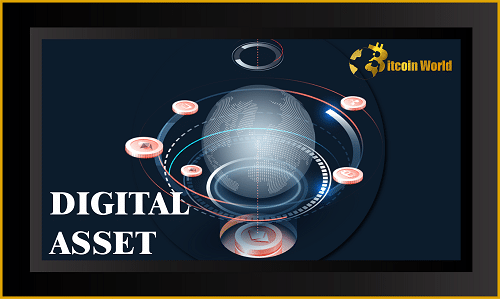Remember the days of scrambling for exact change or waiting in long bank queues? For many of us, those are fading memories, thanks to the rapid shift towards digital payments. The pandemic certainly accelerated this trend, making contactless transactions and digital alternatives to cash the new normal. But beyond convenience, the digital revolution, particularly with the rise of digital assets, holds a powerful key: financial inclusion. Unlike traditional banking, which often leaves many behind, digital finance aims to bring essential services to those who’ve been economically excluded or underserved. Think of it as a financial system built for everyone.
Why the Sudden Shift to Digital?
The financial landscape is changing, and fast. Here’s why:
- Customer Demand: Let’s face it, who wants to trek to a physical branch when you can manage your finances from your phone? Newer generations especially expect mobile-first banking solutions.
- Mobile Power: The widespread adoption of smartphones is a game-changer. Suddenly, access to financial services isn’t tied to physical locations. Even those who primarily used cash are now embracing digital tools.
- Outdated Systems: Traditional banks often grapple with legacy technology, making it harder to adapt and innovate quickly.
This digital transformation isn’t just about convenience; it’s about helping emerging nations achieve crucial goals like poverty reduction by bringing more people into the formal financial system.
The Role of Blockchain and Cryptocurrency
Providing financial infrastructure for the unbanked isn’t always easy for traditional institutions. It can be costly and risky. This is where technologies like blockchain step in.
Imagine a system where you can securely store and transfer value without needing a traditional bank. That’s the promise of blockchain and cryptocurrencies. In recent years, as people seek ways to protect their wealth, crypto has emerged as a popular alternative investment. Despite market fluctuations, experts like Campbell Harvey from Duke University believe the underlying potential of the crypto industry will continue to attract investment, drawing parallels to the resilience seen after Bitcoin’s 2018 price drop.
Initially, blockchain technology, the backbone of cryptocurrencies, was envisioned to disintermediate finance, essentially cutting out the middleman – banks.
Decentralized Finance: A New Frontier
The decentralized finance (DeFi) space is rapidly evolving, offering even more opportunities for the unbanked. Think about accessing borrowing and lending services without the usual hurdles of KYC (Know Your Customer) requirements or credit scores. Thanks to open-source technology and growing investment in cryptocurrencies and blockchain networks, a more inclusive financial system is taking shape.
Beyond Bitcoin: Understanding the Buzzwords
Terms like Bitcoin, cryptocurrency, and tokenization are everywhere, fueled by their massive market presence and exciting new applications like Non-Fungible Tokens (NFTs). These innovations are potentially reshaping how we perceive value exchange, offering advantages like:
- Faster Transactions: Reduced settlement times.
- Lower Risk: Enhanced security through blockchain technology.
- Increased Liquidity: Easier trading and access for various asset classes.
How Crypto Empowers the Unbanked
For individuals without access to traditional banking, cryptocurrencies offer tangible benefits:
- Global Access: Open a digital wallet and send funds internationally with significantly lower transaction fees.
- Always Available: Cryptocurrency networks operate 24/7, a crucial advantage in areas with limited banking infrastructure.
- No Geographical Barriers: Transactions happen online, eliminating the problem of distance to physical bank branches.
The recent conflict between Russia and Ukraine has highlighted the critical role cryptocurrencies and blockchain can play, particularly for vulnerable populations.
Navigating the Challenges and Concerns
While the enthusiasm for cryptocurrency is strong, how does it align with sustainability? This is a key question to consider.
Emerging concepts like Decentralized Autonomous Organizations (DAOs), DeFi, tokenization, and NFTs are challenging traditional frameworks. This can create friction with existing regulations concerning cross-border data transfers, intellectual property, and capital controls. Furthermore, it introduces complexities in taxation and other policy areas.
Given the potential impact of cryptocurrencies on global financial stability, robust regulatory discussions are essential at both national and international levels. The rapid growth and complexity of digital asset trading platforms necessitate clear governance and supervision. While cryptocurrencies offer benefits like financial efficiency and inclusivity, concerns around volatility, lack of regulation, and the potential for illicit financing remain valid.
The Future of Money: A Cashless Society?
Cryptocurrencies and stablecoins are often touted as alternatives to Central Bank Digital Currencies (CBDCs). However, no single digital solution has yet completely replaced physical cash. While cryptocurrencies alone may not be the sole answer, stablecoins, designed to maintain a stable value, show more promise but still face limitations. The recent failure of UST, an algorithmic stablecoin, underscores the risks involved. CBDCs, while offering potential, are not yet widely accessible.
While the trend towards digital payments is clear and can contribute to democratizing finance, it’s important to recognize that even a cashless future will likely have its own set of challenges and imperfections.
Key Takeaways:
- Digital payments are transforming the financial landscape, driven by consumer demand and technological advancements.
- Cryptocurrencies and blockchain technology offer significant potential for financial inclusion, particularly for the unbanked.
- Decentralized finance is creating new opportunities for accessing financial services without traditional intermediaries.
- While offering numerous benefits, the crypto space faces challenges related to regulation, volatility, and sustainability.
- The future of money is likely digital, but careful consideration of risks and regulations is crucial.
The journey towards a more inclusive financial system is ongoing. Digital payments and cryptocurrencies are powerful tools in this endeavor, offering a glimpse into a future where financial access is no longer a privilege, but a right.
Disclaimer: The information provided is not trading advice, Bitcoinworld.co.in holds no liability for any investments made based on the information provided on this page. We strongly recommend independent research and/or consultation with a qualified professional before making any investment decisions.


